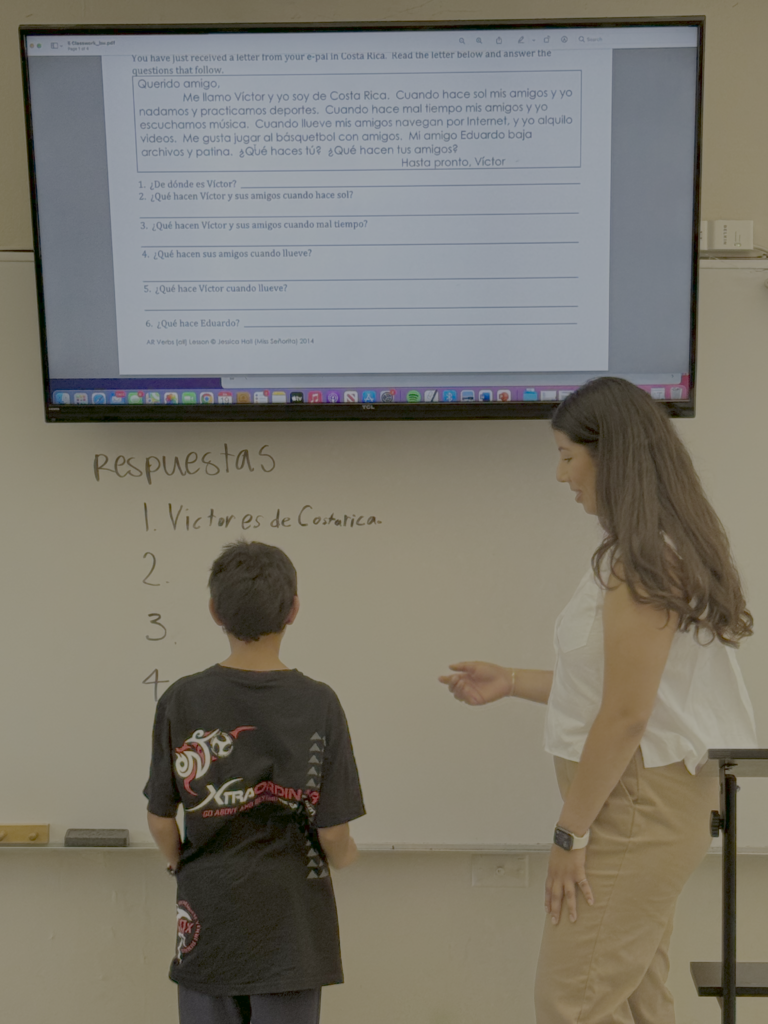Author: Monisha Gupta • Head of Learning and Innovation at Action Day Schools
Artificial Intelligence is becoming an essential component of modern education systems. Similar to previous educational technology tools, it presents unparalleled opportunities and significant challenges for our schools. How we leverage those opportunities and surmount those challenges to elevate student learning will depend on our ability to integrate AI thoughtfully into curriculum, provide educators with adequate training, and ensure equitable access to these tools for all students. By doing so, AI can personalize learning experiences, enhance engagement, and help educators identify and address student needs more effectively, ultimately fostering a more inclusive, innovative, and supportive learning environment.
At Action Day Schools, we have embraced Artificial Intelligence enthusiastically prioritizing AI literacy, demystifying and gaining clarity on the power and possibilities of this technology. With 20% of our students claiming to use AI to complete assignments on a recent survey by Challenge Success, it was time for us to embrace and regulate this technology in our educational approach. By setting clear guidelines and providing resources for ethical and effective AI use, we could better support student learning and ensure AI tools enhance, rather than undermine, their educational experience.
Earlier this year, the Action Day Middle School teachers received training on how AI works, myths surrounding the large language models, bias in data used by AI, designing learning activities and trying new approaches to implementing artificial intelligence into the classroom. Since then, the faculty has created a unified approach to the use of AI in teaching and learning and written the school’s AI policy. The policy guides students to use AI ethically under the guidance of a teacher so students can complete assignments or assessments while understanding the concepts, provide proper attribution and know that AI tools might promote bias or discrimination.
Since we launched, our teachers have been exploring the intersection of AI and education and uncovering how AI can be combined with pedagogy to enrich our students’ learning experiences.
Our Language Arts teachers use AI to empower students to enhance their writing skills by learning how to interact meaningfully with AI without relying on it to complete the work for them.
As a difficult task that requires a lot of experience with AI, our middle school language arts teacher encourages students to ask AI multiple specific prompts, such as “can you suggest…” or “explain the changes you made…” These types of prompts help students understand suggested improvements rather than simply copying AI’s responses. For example, if they’re revising a paragraph, the student might ask AI to suggest improvements or explain specific changes, but without providing a rewritten version. This approach requires students to carefully consider each suggestion, encouraging them to incorporate these insights in their own words.
Through repeated interactions with these specific prompts, students become familiar with the mechanics of editing and refining their work independently, fostering deeper engagement with their writing process. It’s a way of integrating AI as a constructive tool rather than a shortcut, which ultimately enhances their learning experience.
Our science teacher has used AI to generate labs rooted in inquiry, discovery and scientific practices. Our Expressive Arts specialist teacher has used AI to enhance her performing arts lesson to create a five-minute “Do Now” activity for each lesson, and for each part of the lesson plan to create differentiation strategies for different types of learners. Our Spanish maestra is guiding students to use AI for Conversation Practice, Pronunciation Tools and Grammar and Vocabulary Assistance. Our curriculum specialists have used Google’s Gemini specifically to generate standards aligned student and teacher materials for our new novel studies.
From our youngest learners in Grade 3 to our Middle School students in Grade 8, our students are introduced to Artificial Intelligence and Machine Learning with Tynker Blocks in our computer Science classrooms. Webcam projects powered by AI help students understand how AI models are driving their amazing inventions behind the scenes. Students also explore the ethical design of AI by researching famous failures and successes in fields like medicine, authorship, criminal justice, war, and more.At Action Day, our aspiration is to be a leader in experiential and relevant learning, constantly evolving to meet the changing needs of our students. Through our ever-evolving coursework, we aim to foster creativity, innovation, and entrepreneurial mindsets, thus preparing students for success outside the classroom, for future learning and careers. Even as AI becomes more prevalent in our schools, our learning beliefs remain unchanged. These beliefs – starting with ensuring student wellbeing, crafting joyful learning experiences, cultivating a sense of belonging and fostering critical thinking guide us in our work as educators as we navigate this exciting new wave of technology.




